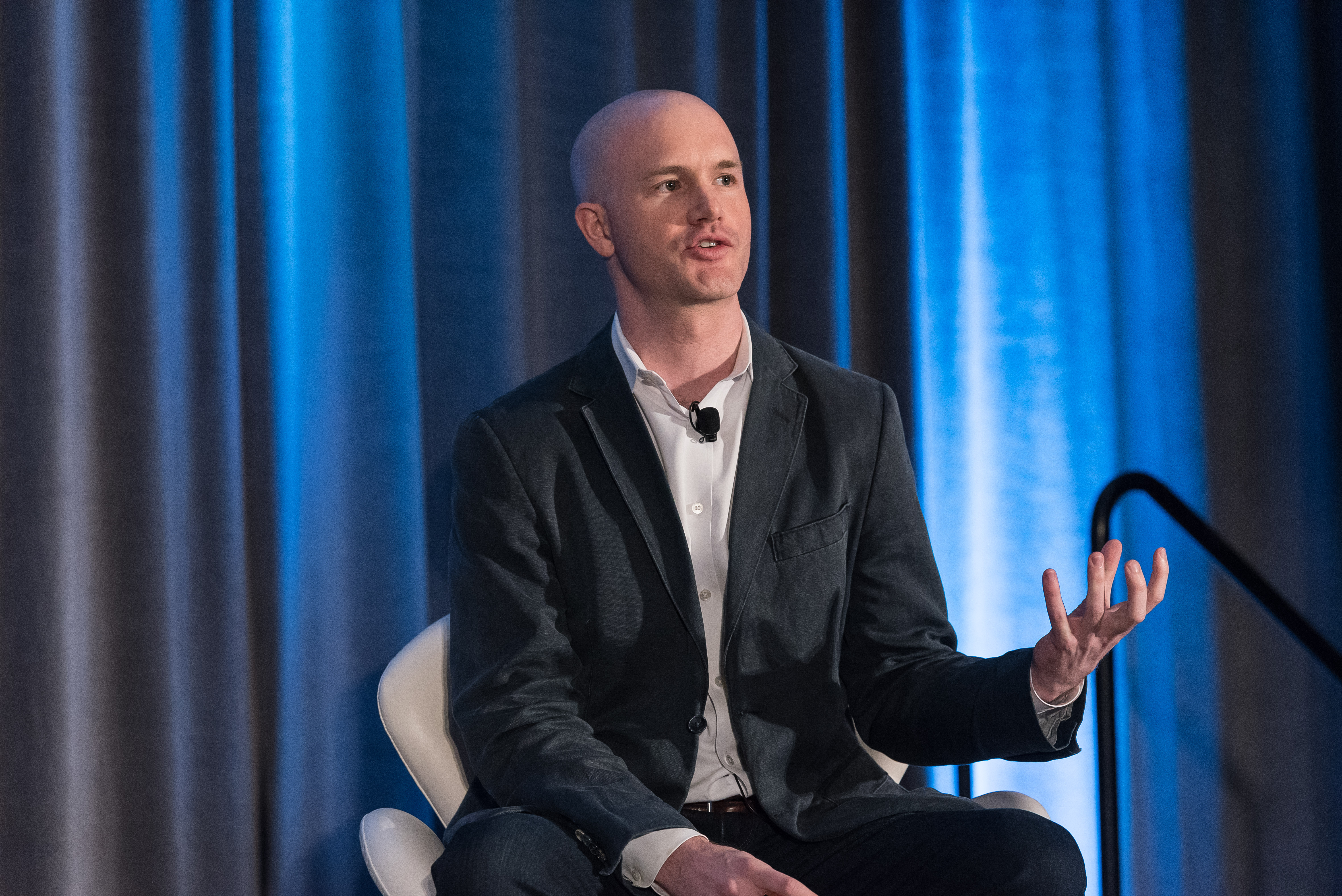What would the financial world look like with an open payments system? One day, sending funds could be as simple as sending an email.
The potential for blockchain, cryptocurrencies and international payments were discussed during a Money20/20 Q&A session in Las Vegas. The discussion featured Brian Armstrong, founder and CEO of Coinbase.

“Payments today is like a patchwork quilt of proprietary systems owned by private companies or sometimes governments,” Armstrong said. “I want the world to have an open financial system.”
The current financial services sector is influenced by a few governments and oligopolies and is plagued by inefficiencies and high fees. Using blockchain ledgers could decentralize payments, speed up the international payments process and democratize money management.
Armstrong’s eyes were opened to the potential of digital currency after reading an early paper on bitcoin.
Coinbase, a digital wallet for cryptocurrencies, was founded in 2012 and now supports bitcoin, Ethereum, Lightcoin and other digital currencies. Armstrong said Coinbase has evolved into “more of a brokerage than a wallet.”
“In the world of stocks, you have Fidelity and Charles Schwab where the average consumer may go to buy and sell these assets,” Armstrong said. “You also have things like the New York Stock Exchange where institutions trade and professional investors,” he said. “We have a platform that’s similar to [NYSE] for people to exchange for institutions and professional traders called GDAX, which stands for Global Digital Asset Exchange.”
Bitcoin is the most popular and has experienced the most ups and downs in the marketplace, but there are many more digital currencies out there. The initial coin offering for those currencies could catalyze the stock exchange 2.0.
Ethereum has even greater potential for broader applications. It can run other programming and can process about 25 transactions per second — think javascript and the Internet.
Coinbase stepped up its efforts to simplify and reduce the time it took to buy and sell Ethereum, which is available in the local currencies of 33 countries.
“We need to get people connectivity and access into this space to experiment in it,” Armstrong said. “Internally, we’ve begun experimenting with our own smart contracts and built some applications in Ethereum. We haven’t launched any of them publicly, but you might see that from us and others in 2017. We’ve also begun to experiment with what the consumer interface with Ethereum might look like.”
But to further catalyze financial services innovation, bitcoin and other digital currencies must be able to scale beyond its current operating capacity. Right now, bitcoin can process about seven transactions per second, trailing behind PayPal at about 500 transactions per second and Visa at several thousand per second.
In addition to being slower than other platforms, regulatory skepticism remains around the cryptocurrency ecosystem, and some blockchain aficionados find the distributed ledger technology appealing because it is outside of the regulatory framework.
Armstrong added that such thinking also applies to other financial services, such as peer-to-peer lending.
But to keep Coinbase going, the company has a “culture of compliance,” meaning that it regularly conducts training with law enforcement and regulators as well as apply for the necessary licensing overseas. Now that regulators are paying more attention to the FinTech sector, operating under their radar will only last so long.
“We have about 115 people at Coinbase, roughly 20 percent of them work on compliance in some way, shape or form,” Armstrong said. “We know that in order for digital currency to succeed we need to work with the existing financial ecosystem out there.”
What will all of this mean for consumers?
As financial transactions move toward their smartphones and computers, there is an opportunity to make mobile money a reality internationally. At this point, however, there isn’t a widespread, international use of these tools.
“People spend more time on their smartphones than they do on their computers,” Armstrong said. “All the data points in that direction. We think that there’s an opportunity to make mobile money happen in other parts of the world.”
